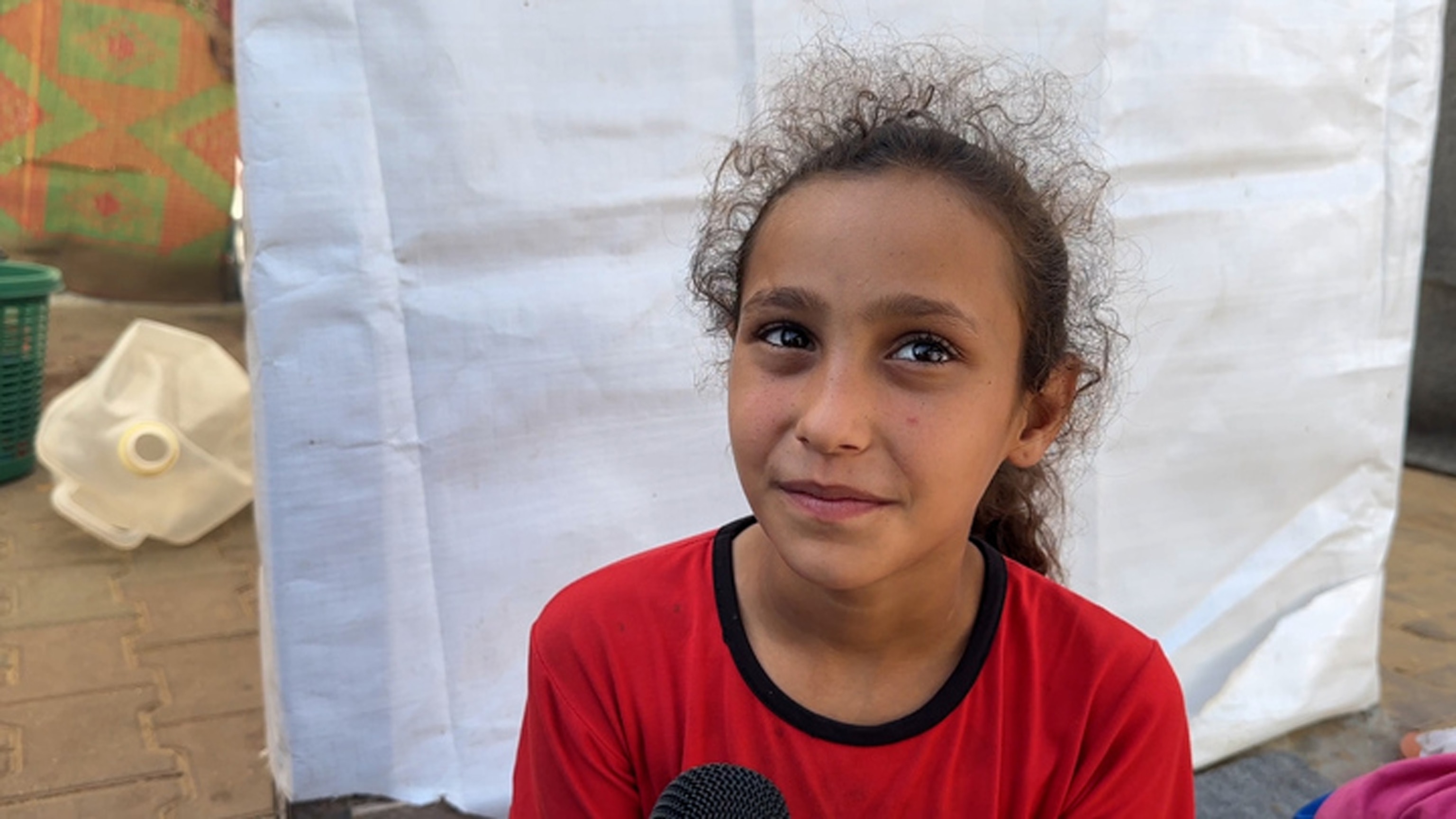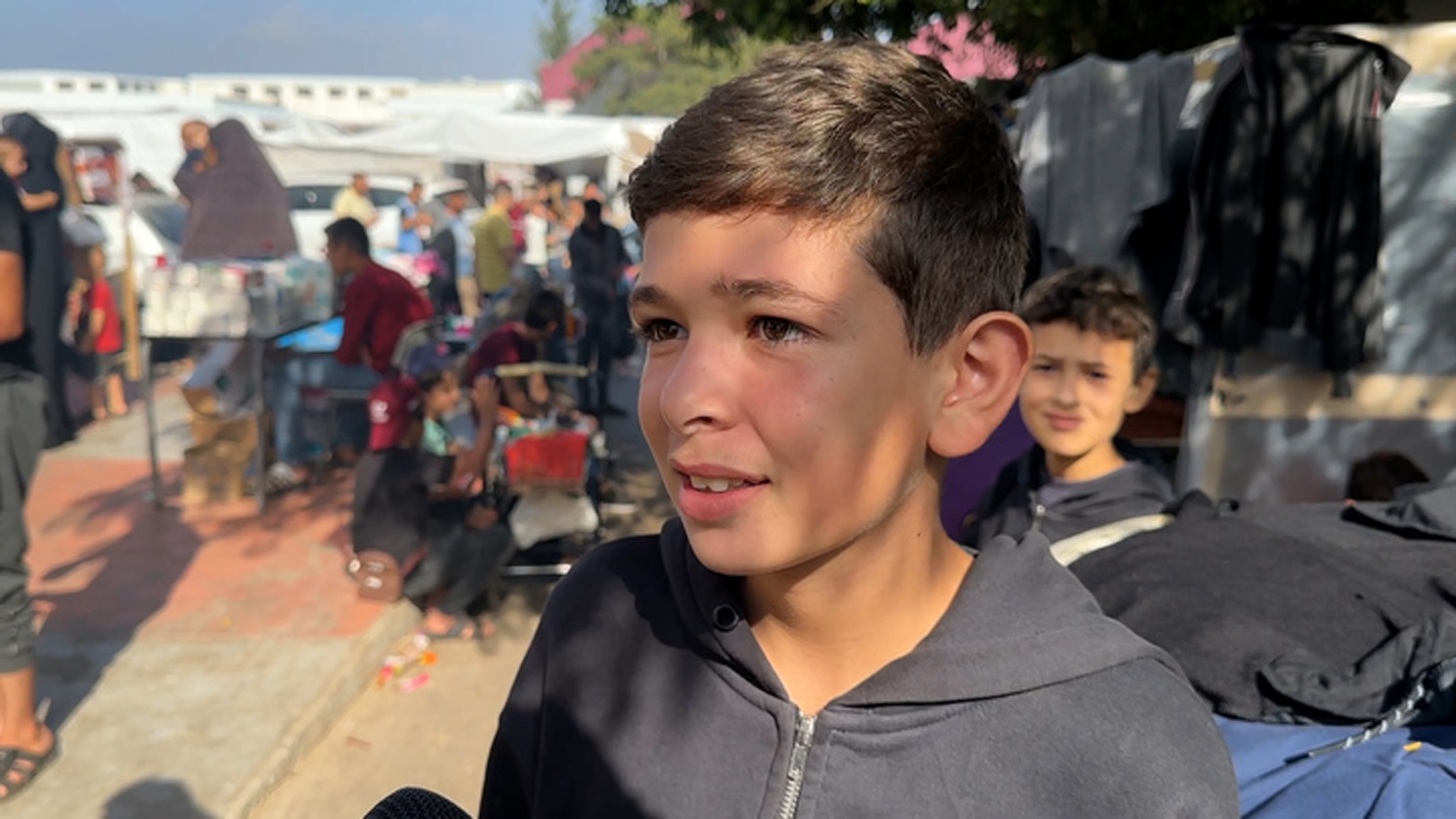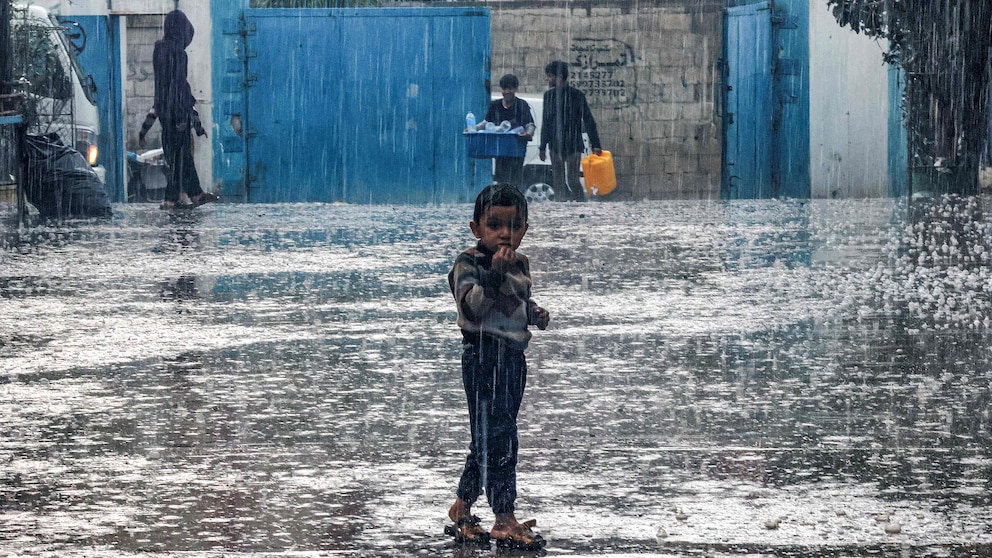Editor’s note: This reporting contains graphic descriptions.
As the war between Israeli forces and the Hamas terror group rages on, children caught in the crossfire on both sides of the conflict are enduring unfathomable horrors.
From witnessing their parents slain and having loved ones kidnapped to living in constant fear of being hit by a missile, some of the children in the war zone told ABC News they have witnessed a living nightmare.
Despite the crisis they now find themselves in by no fault of their own, 11-year-old Israeli girl Alona Rousso and 9-year-old Palestinian boy Riad Ashraf al-Sharbasi both say they still cling to hope peace replaces war.
“I personally think that there is going to be peace someday,” Alona, a resident of the Kibbutz Kfar Aza in southern Israel, told ABC News. Her kibbutz is one of multiple kibbutzim and towns Hamas terrorists attacked on Oct. 7, killing at least 1,200 Israeli civilians and soldiers and kidnapping around 240 people, including Alona’s father.
Alona said she misses her dad terribly, longing to resume the games they often played together.
“My dad was a good man,” she told ABC News. “I remember when we lived in our old house and he would help me build a pillow fort and then we would play hide-and-seek and he won because he’d know all my hiding spots. I really miss those moments and wish I could play with him one last time before he left without saying goodbye. I’m still a little mad about him for leaving without saying anything.”

Alona Rousso, an 11-year-old Israeli girl, poses in this undated photo with her father, who is being held hostage by Hamas terrorists.Enable Ginger Cannot connect to Ginger Check your internet connection or reload the browserDisable in this text fieldRephraseRephrase current sentenceEdit in Ginger×
Courtesy Alona Rousso
She said if she could speak to the Hamas terrorists holding her father, she would ask, “Why are you doing this?”
Riad is one of more than a million Palestinians displaced by the war, according to the United Nations Relief and Works Agency (UNRWA). Riad and his family are now sheltering in Khan Yunis in southern Gaza. He told ABC News he misses his home and his toys, especially his favorite toy duck.
“I’m afraid of the rockets. I’m afraid of people getting injured and dying, and I’m afraid of planes bombing our homes,” he said.
When asked if he believes the war will end someday, he didn’t hesitate to say, “Yes.” Like Rousso, he said his wish is to “make people live and sleep in peace.”

A Palestinian boy rides a bicycle amidst debris in Rafah, in the southern Gaza Strip on Nov. 13, 2023.
Mohammed Abed/AFP via Getty Images
Similar sentiments were shared by Riad’s mother, 32-year-old Maha al-Sharbasi, who recently gave birth to a son.
“I want the children to live in peace, cleanliness, and good health conditions. At the very least, for the sake of the children,” Maha al-Sharbasi told ABC News. “We, the adults, are not the issue; the children are what matter. They all get scared and run to someone to hold them. I try to calm them until the danger passes, but the danger returns quickly. Children are playing, and as soon as there is shelling, they get scared and run away.”
‘I don’t want to die on my birthday’
In addition to the more than 1,200 Israeli civilians and soldiers killed more than 6,900 others were injured in the surprise attack by Hamas terrorists, who fired thousands of rockets into Israel on Oct. 7 and infiltrated the border from Gaza on motorcycles, on foot and by boat and even motorized paragliders, according to Israeli officials. Children were among the approximately 240 hostages taken, Israeli officials said.
In retaliation, Israel launched a missile attack on Gaza, destroying many civilian neighborhoods and facilities, claiming Hamas is using civilians as human shields. Israel has also begun a ground operation into the territory intent on rooting out the Hamas terrorists once and for all and saving the hostages.
More than 11,500 people have been killed in Gaza since the fighting began and at least another 29,800 have been injured, according to the Hamas-run Gaza Health Ministry.

Mohammad, a Palestinian boy staying at the UN Relief and Works Agency shelter in Khan Yunis in southern Gaza.
Sami Zayara/ABC News
Mohammad, a Palestinian boy also staying at a UNRWA shelter, told ABC News that his cousins and friends had been killed in the conflict.
“I’m scared,” Mohammed said. “There is a big difference before the war and after. I used to go to school and have a normal life but in the war, it’s becoming bad. A lot of my friends were killed and injured also the sheikh in our mosque was killed. There is no internet and nobody is making a push to end the war.”
He said he was displaced from his home when Israeli soldiers advanced into Gaza.
“They entered our house and occupied us, and they displaced us. We’re immigrants due to the occupation,” Mohammed said, adding that he wants nothing more than to go back to his home.
Israeli teenager Rotem Mathias told ABC News that he witnessed his parents, Shlomi and Deborah, die at the hands of the Hamas terrorists who infiltrated their kibbutz in southern Israel and opened fire on his home.
“The terrorists shot open the door,” said Rotem, a dual Israeli-American citizen. “They throw a grenade or something that exploded. The last thing my dad said is he lost his arm and then my mom died on top of me.”

ABC News’ James Longman spoke to Rotem Mathias, right, who survived the attack by Hamas in Israel, along with his sister. Their parents, Shlomi and Deborah, were killed in the attack and the siblings are now being cared for by their grandfather, Ilan.
ABC News
He said he survived by hiding under bloody clothes and staying silent and still.
“I just stopped my breathing, I lowered it down as much as I possibly could,” Rotem said. “I didn’t move. I was terrified. I didn’t make any noise. And I prayed for any god — I didn’t really care which god — I just prayed for a god that they won’t find me.”
Israeli boy Uri Aharon said numerous neighbors and friends were killed in the Hamas rampage of Kibbutz Nir Oz, his community in southern Israel. He said the attack occurred on his ninth birthday.
More than a third of the 400 residents of Kibbutz Nir Oz were either killed by Hamas terrorists or taken hostage, according to Israeli officials. In the aftermath of this tragedy, the survivors of Kibbutz Nir Oz were relocated to a hotel in southern Israel, where some told ABC News they are grappling with the immense grief resulting from the loss of family members and friends.
Uri said he survived by hiding for hours in his family’s safe room. He recalled telling his mother during the siege, “Mom, I don’t want to die on my birthday.”
Ori Bar, another Israeli boy from the Kibbutz Nir Oz, told ABC News that during the Hamas attack, he said to his mother, “I don’t … want to live in a place where they keep on trying to kill me.”
‘I feel very sad’
Back at the UNRWA shelter in Khan Yunis, Palestinian children told ABC News they have been living in agony since the war started, having witnessed their neighborhoods leveled by the Israeli strikes.
Hanin, a 10-year-old Palestinian girl, said life in the shelter has been tough and that she also remains “scared of the bombings, rockets, and explosions.”

Hanin, a 10-year-old Palestinian girl, staying at the the U.N. Relief and Works Agency shelter in Khan Yunis in southern Gaza.
Sami Zayara/ABC News
“I want to go back home and back to school,” said Hanin, one of nine children in her family. “There’s no food here, and we’re staying in torn tents. It might rain on us.”
Asked what her message to the world is, she said, “I want to go back to our country.”

People walk at a tent camp sheltering displaced Palestinians, amid the ongoing conflict between Israel and Palestinian Islamist group Hamas in Khan Younis, in the southern Gaza Strip, Nov. 14, 2023.
Ibraheem Abu Mustafa/Reuters
Mohammad Alyazji, a Palestinian boy, told ABC News he has been staying at the tent shelter for more than 20 days. He said he has gotten used to gauging the distance of the airstrikes and knows which ones to run from.

Mohammad, a Palestinian boy staying at the UN Relief and Works Agency shelter in Khan Yunis in southern Gaza.
Sami Zayara/ABC News
“It’s normal if the airstrikes are far, but I get scared if they are close,” he said.
Asked how he feels about being displaced and living in a war zone, Alyazji said, “I feel very sad and I think about my uncles and my grandfather’s house.”

